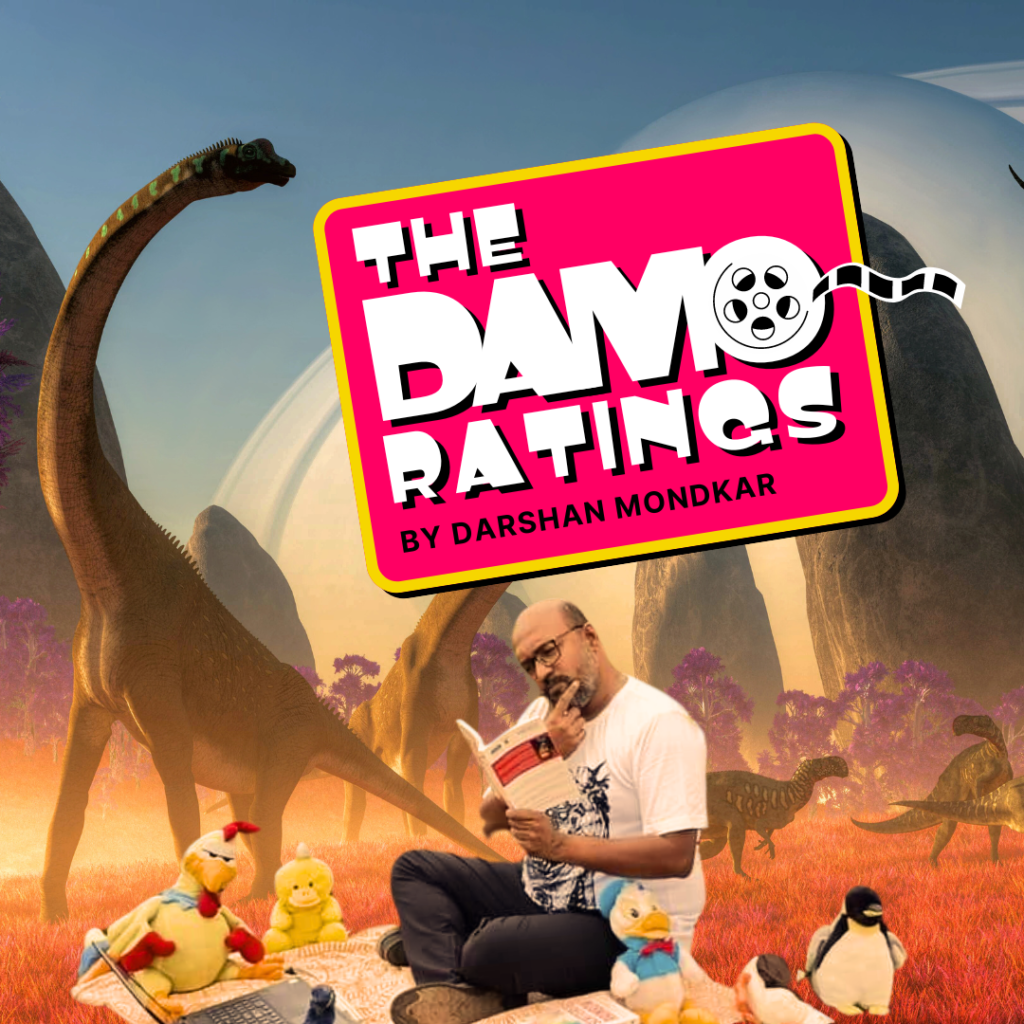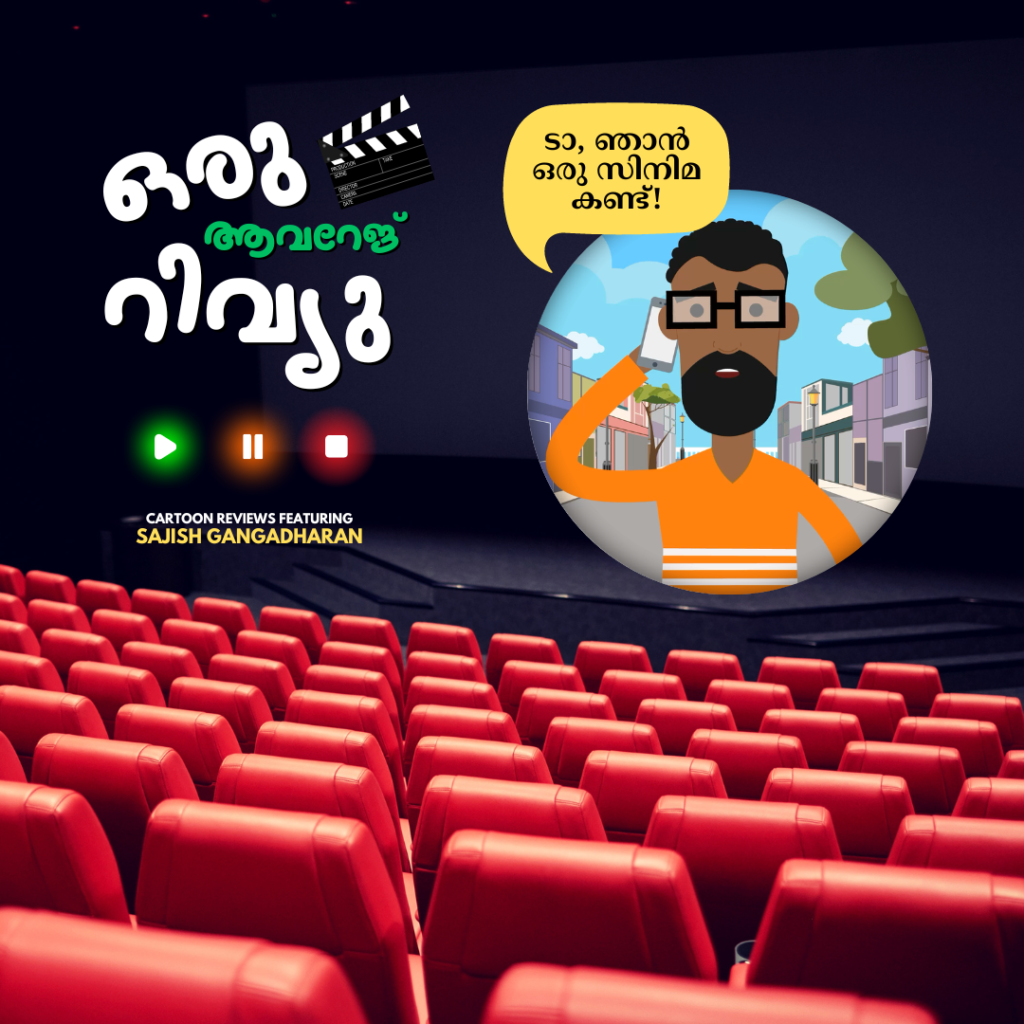Meiyazhagan is an emotional rollercoaster in the best ways. It tugs at your heartstrings, squeezing out the essence of everything good in relationships, family, and the goodness of people—in the best of times, and at the worst. Does it succeed? Very well.
The movie sets its pace right in the opening scene as we witness how a family is uprooted from their ancestral home in a town near Thanjavur in the aftermath of a property dispute and subsequent partition. We watch the family, in painful detail, leaving everything and everyone they have known all their life, to move lock, stock, and barrel, to Madras. An old grindstone is literally pried off its moorings with a crowbar, serving as a metaphor of what the characters are going through.
The goodbyes between close family members of a joint family is tearful and heartbreaking. Arul, a young man just past his teens, leaves an old bicycle, the last of his belongings, behind as he climbs onto the lorry laden with household items. There’s an overwhelming sense of sadness, a sense of finality, to the family’s departure as the screen fades to black.
The movie then fades in in Chennai where Arul (Aravind Swamy) is now married, has a tween daughter, and lives a life of quiet contentment in a rented house where he spends some of his time tending to a huge flock of parrots on the rooftop. Soon we learn that he has to visit his hometown at the request of his little cousin sister Bhuvana, who insists that he has to attend her wedding.
All of sudden, two decades of estrangement comes into painful focus, bringing on a sense of dread in Arul. Neither he, nor his dad, has ever gone back to their hometown in the intervening years, and he would rather leave it like that. His wife convinces him to make the trip, for old times’ sake.
What happens on his trip is what shapes the movie into a compelling story on the way people are with each other—with family, with others, with those that they know and love, and those that they don’t. An overenthusiastic stranger, played to perfection by Karthi appears on the scene out of nowhere, to chaperone Arul as he goes about making his attendance known to people he hasn’t seen in twenty-odd years. An old flame who reminisces about him and regrets not having married him, old relatives, his little sister and her new husband…
The stranger, of course, insists that he was very close to Arul in his childhood, and that he has been personally tasked with the responsibility to see that Arul should want for nothing during his stay at the village. Arul, unfortunately, has no recollection of the friendly stranger. Try as he might to recollect who he is, he fails completely. He resigns to suffering the stranger’s overbearing but obviously well-meaning presence in silence, choosing not to offend him by not recognising someone who addresses him affectionately as Athaan (cousin) with a sense of pride and possession, unbound love and obvious familiarity.
Between moments of hilarity and reminiscences, the movie pieces together a story of Arul’s (and the stranger’s) past, through the eyes of this stranger to whom Arul seems to be nothing less than God; someone who changed his life forever, and was there when needed the most. Arul goes from seeing the stranger as an annoyance to genuinely enjoying his company, but struggling with—with increasing discomfort—the total lack of any memory of the man or being such an important person in his life.
Without giving away any details (no spoilers!) or the ending, the narrative takes us through Arul’s immense, very real struggle with his repressed memories until he is able to break through with the stranger’s help. Arul sees the stranger for what he is, and finds catharsis in his discovery. The movie is a layered study of what relationships can be, and what home means.
All this is done through finely nuanced performances from Aravind Swamy and Karthi who lead us through a rollercoaster of highs and lows with studied ease. The other characters chip in, with the powerhouse Rajkiran doing his bit to bring a tear or two to our eyes in trademark style. What I also liked was how wholesome the relationships of the two main men and their spouses are portrayed. Both are solid pillars of support for their husbands, while being strong on their own.
Overall, it is a movie well worth your two and a half hours.
Trigger Warning: My strong reaction to the movie was definitely coloured by the way the story reminded me of the many parallels in my own life, about being uprooted and separated from places, people and lives during childhood in irreparable ways. If this sounds anything like your life, make sure you’re ready to weep. The story will trigger you.






Leave a Reply